The Israeli army is focusing its efforts on retaliating against Hamas in the Gaza Strip, but must still be wary of Hezbollah, a formidable opponent ready to open a "second front" in the north.
The Israel Defense Forces (IDF) is massing 360,000 troops along the Gaza Strip border, ready to launch a ground operation into the enclave to counter Hamas. But at the same time, they must also guard against the constant threat from Hezbollah in Lebanon, to the north of the country.
"Hezbollah is taking part in Hamas' confrontation with Israel and will continue to do so according to our vision and plans," Hezbollah deputy leader Naim Qassem said at a pro-Palestinian rally in the southern suburbs of Lebanon's capital Beirut on October 13. "We are watching the enemy's movements, we are fully prepared and when the time comes, we will act."
Hezbollah's threats have forced the IDF to deploy tens of thousands of troops to its northern border, aimed at deterring Hamas's Lebanese ally, which has twice defeated the IDF.
Tensions along the Israel-Lebanon border have escalated in recent days, with both sides exchanging artillery fire. On October 13, the two sides shelled each other’s outposts, after Israel detected an armed group attempting to infiltrate its border from Lebanon.
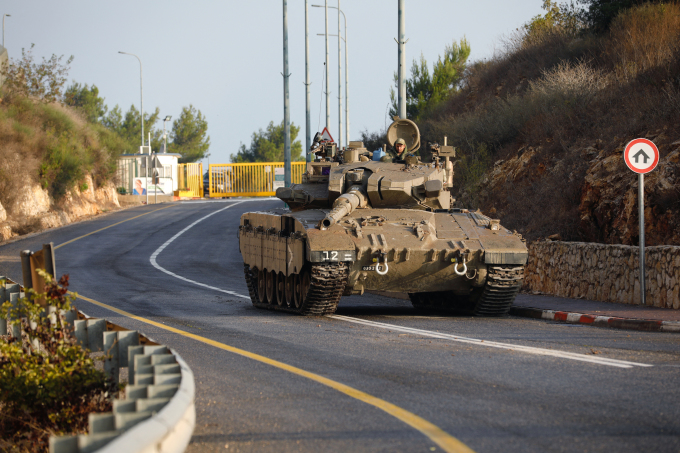
Israeli tanks block the entrance to the Misgav Am settlement near the Lebanese border on October 10. Photo: AFP
Recent developments have made observers worry that Hezbollah is ready to open a "second front" in response to Hamas's call in the war with Israel, pushing Tel Aviv into a situation of being attacked on two sides and escalating the war from bilateral to regional conflict.
According to Daniel Byman, a senior fellow at the Center for Strategic and International Studies (CSIS), Hazbollah has been Israel's most formidable opponent since its formation in the early 1980s. Hazbollah's original mission was to end the Israeli military presence in southern Lebanon, which resulted from Israel's two invasions of Lebanon to attack members of the Palestine Liberation Organization (PLO).
Hezbollah has had more than one success. Armed attacks and suicide bombings forced Israel to withdraw from Lebanon in 2000. A second war between Hezbollah and Israel broke out in 2006, after Lebanese gunmen crossed the border and killed eight Israeli soldiers and took two hostage. Israel ended the campaign after 34 days with 157 dead, but failed to weaken its adversary or reestablish a solid presence in Lebanon.
Hezbollah controls parts of the capital Beirut, southern Lebanon and much of the Beqaa Valley. It also has political representation, holds seats in the Lebanese parliament and, in recent years, has controlled several government ministries and agencies with its allies.
The Lebanese militant group receives financial support, weapons and military training from Iran. According to expert Byman, Hezbollah is "more combat-ready than many other armed groups" in the Middle East, and is also a fairly modern armed group.
They have had nearly two decades without a major conflict to increase their arsenal, including anti-ship cruise missiles and air defense missiles. With this arsenal, if conflict breaks out, Hezbollah is fully capable of attacking deep into Israeli territory and threatening the IDF air force and navy and its allies, making the conflict more intense.
When the Syrian civil war broke out in 2011, the group sent units to support President Bashar al-Assad, who is also an ally of Tehran. Hezbollah fighters patrolled the Syrian-Lebanese border, fought rebel groups in several Syrian cities near the border and raided Islamic State (IS) strongholds.
At least three Palestinian militant groups have taken refuge in Lebanon under the auspices of Hezbollah: Hamas, Fatah and the Joint Front for the Liberation of Palestine (PFLP). They do not have the resources of Hezbollah, but they are ready to join the fight if their ally declares a second front against Israel.
"If Israel attacks the Gaza Strip, we are ready to fight," said Ahmed Habet, a Fatah party member at the Burj al-Barajneh refugee camp in the Lebanese capital Beirut.
![Members of the Popular Front for the Liberation of Palestine-General Command march during a parade marking the annual al-Quds Day, (Jerusalem Day), at Burj al-Barajneh Palestinian refugee camp in Beirut, Lebanon on April 14, 2023 [Mohamed Azakir/Reuters]](https://vstatic.vietnam.vn/vietnam/resource/IMAGE/2025/1/20/e6ffbb026aa949108f6802dcf811fa10)
Members of the Joint Front for the Liberation of Palestine (PFLP) leadership march in Beirut, Lebanon on April 14. Photo: Reuters
Nicholas Blanford, a senior fellow at the Atlantic Council, a policy think tank, said Tel Aviv has always viewed Hezbollah as a formidable force capable of carrying out operations that require high levels of organizational capacity. The group began training its members in cross-border attack tactics in 2007.
"Hamas's recent campaign is larger than any campaign Hezbollah has ever organized against Israel. However, what Hamas applied is only part of Hezbollah's training curriculum," Blanford commented, warning that this armed organization is "very unpredictable".
The IDF held a two-week “Firm Hand” exercise in early June, which involved multiple hostile forces simultaneously. The Israeli air force, army and navy practiced combat operations in the area bordering Lebanon, with ground defense scenarios and raids “deep in hostile territory.”
Observers say the exercise is mainly intended to deter Hezbollah and other nearby pro-Iranian armed groups, but it is a scenario that Israeli leaders would rather avoid than wait for.
According to expert Mohanad Hage Ali, senior fellow at the Carnegie Middle East Center based in Beirut, Prime Minister Benjamin Neytanyahu's formation of a wartime government is an effort to put aside partisan confrontations so that he can fully devote himself to a large-scale military campaign, including the prospect of Israel simultaneously confronting many forces in the region, including Hezbollah.
"Mr. Netanyahu must feel politically secure at home to be able to lead on multiple fronts at once to deal with the threat from abroad," said Mohanad Hage Ali.
Elias Farhat, a retired Lebanese general, assessed that Israel has generally responded with restraint to provocations from Hezbollah, including mortar and rocket attacks into its territory. He noted that the IDF's "rules of response" have not changed: respond only after the enemy provokes first and only target the area where the enemy fires.
However, opening a new front with Israel would pose a significant risk to Hezbollah. It has lost more than 2,000 members in its operations in Syria, including many senior commanders, a significant loss for the organization’s 25,000-50,000-strong force.
In addition, fighting with Israel could cause damage to infrastructure and affect the Lebanese people, directly undermining the political position that the organization has built up over nearly two decades. Lebanon is already in the midst of an economic and political crisis, with factions deeply divided over power sharing and a stable government yet to be formed.
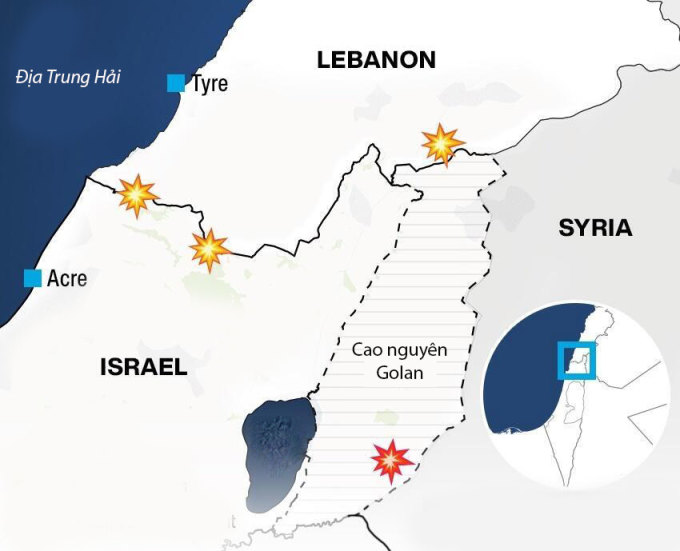
Recent clashes along the border between Israel and Lebanon. Graphics: AFP
Observers expect that the internal problems of Lebanon and Israel will be a fragile barrier to prevent a new war between the IDF and Hezbollah from breaking out. However, the risk of conflict still exists as the situation in the Middle East becomes more complicated and Israel can send troops into the Gaza Strip at any time.
Mohanad Hage Ali of the Carnegie Middle East Center warned that Israel has changed its defensive thinking after the preemptive Hamas attack. It used to view attacks from Gaza and Hezbollah as isolated, non-coalition moves against Israel, but that may have changed.
"Israel used to be wary of the risks and advocated using highly precise strikes to retaliate, instead of using all-out war, because of concerns about the economic and security impacts. However, with the reality that Israeli cities are seriously threatened, Prime Minister Netanyahu and his allies are no longer under any political constraints. Israel can respond to any attack from Lebanon at a very different level," Hage Ali worried.
Thanh Danh (According to Al Jazeera, Times of Israel, Foreign Policy, ABC )
Source link





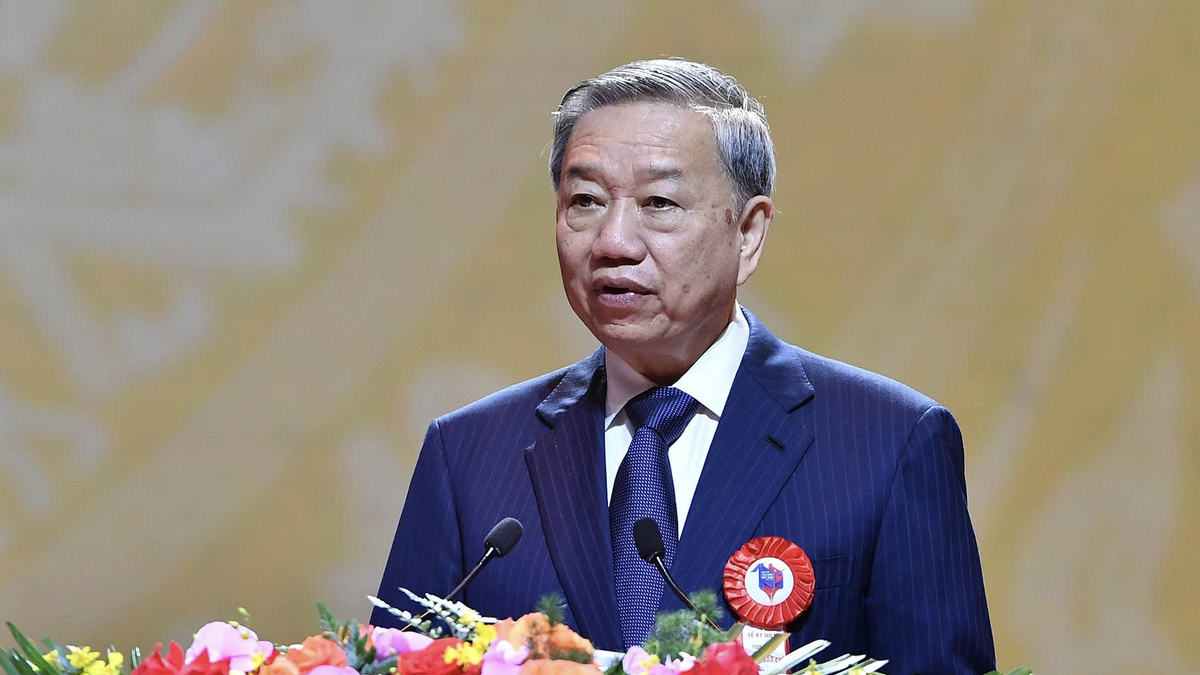





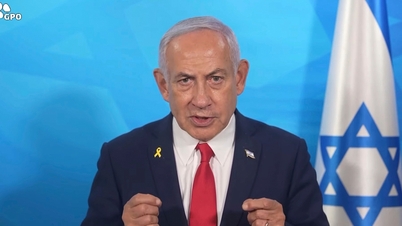
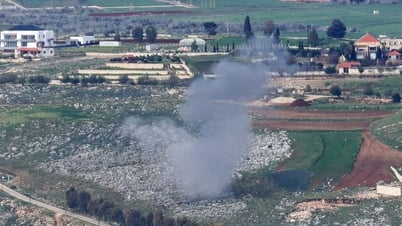
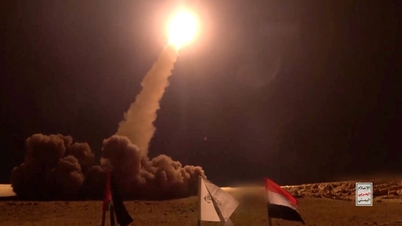
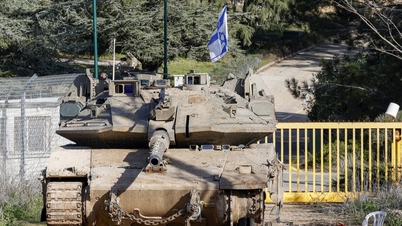




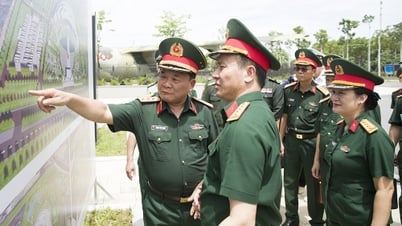












![[Photo] Central Propaganda and Mass Mobilization Department meets with exemplary journalists](https://vphoto.vietnam.vn/thumb/1200x675/vietnam/resource/IMAGE/2025/6/21/9509840458074c03a5831541450d39f8)














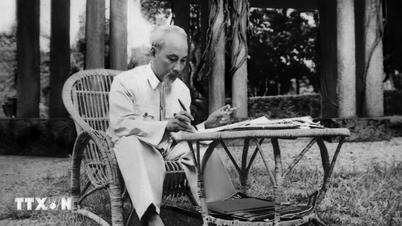




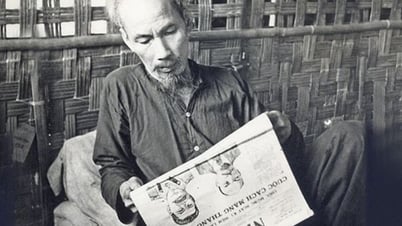





![[Maritime News] Wan Hai Lines invests $150 million to buy 48,000 containers](https://vphoto.vietnam.vn/thumb/402x226/vietnam/resource/IMAGE/2025/6/20/c945a62aff624b4bb5c25e67e9bcc1cb)

















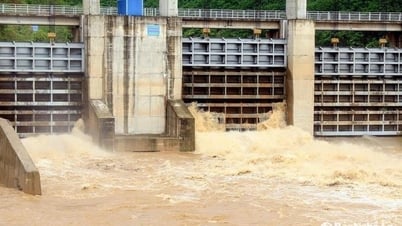

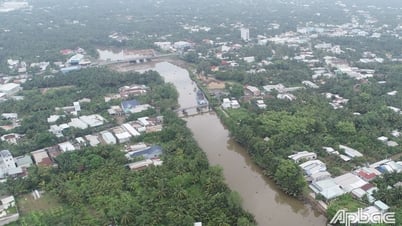

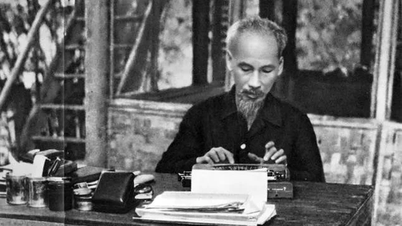

















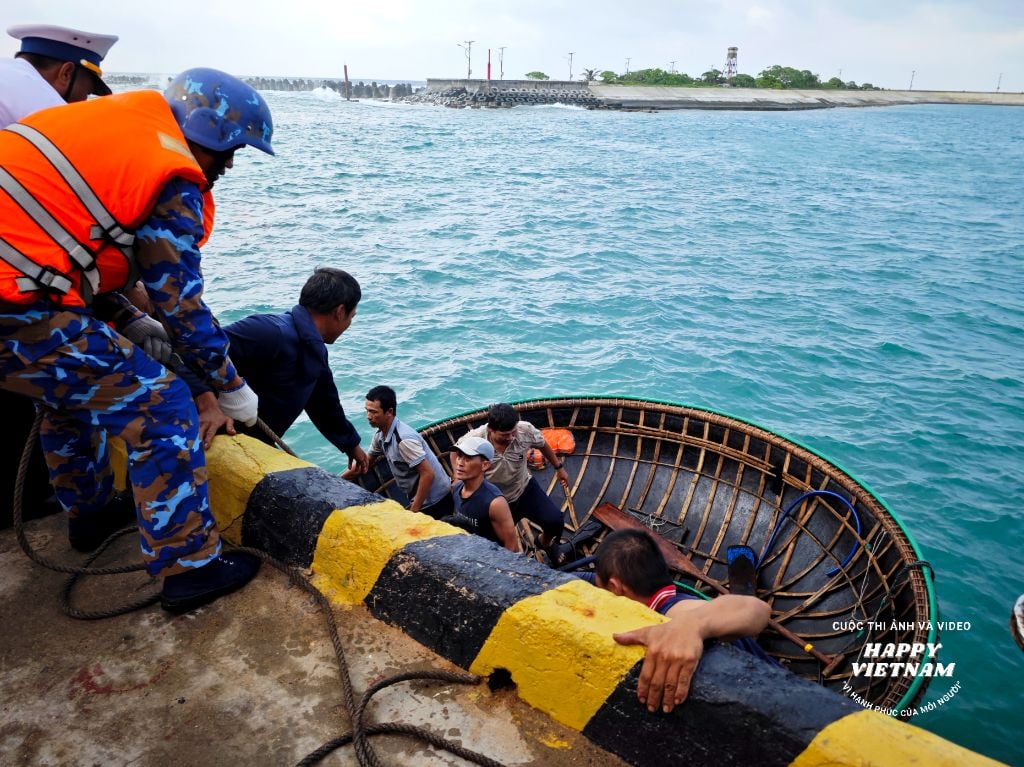

Comment (0)